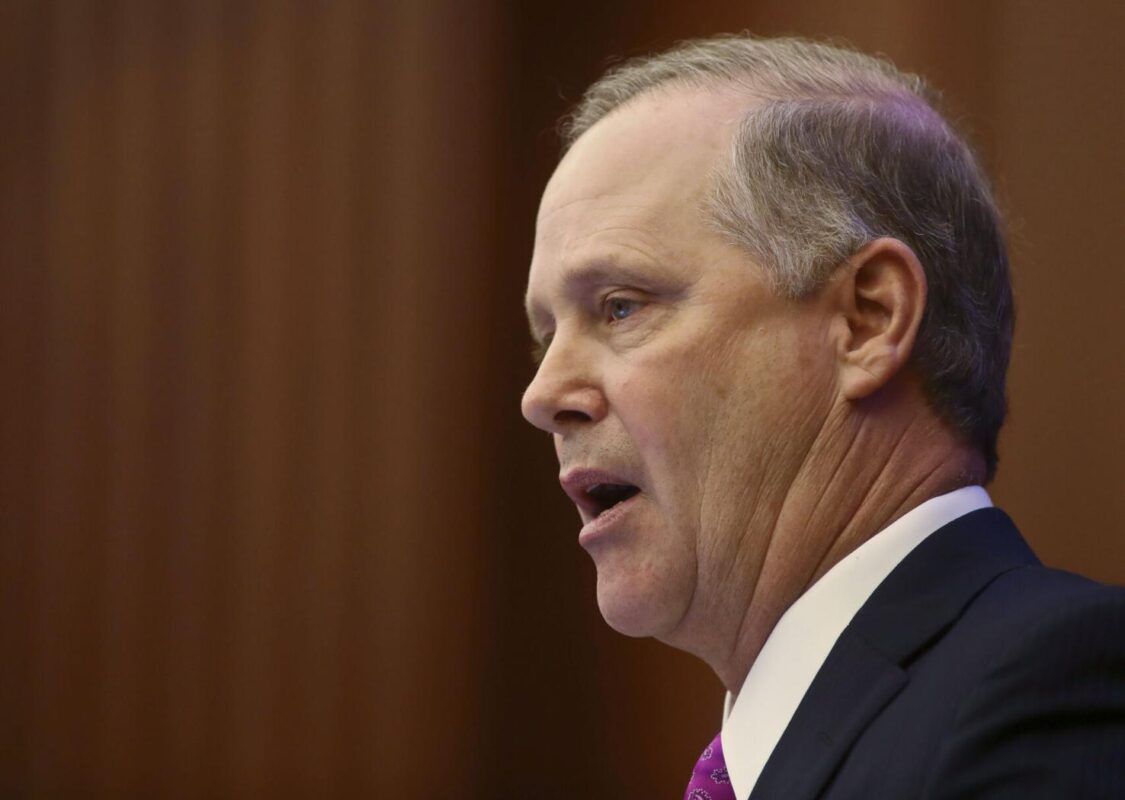The Center Square Florida
By Bethany Blankley
January 13, 2022

(The Center Square) – By the first day of the 2022 Florida legislative session, eight bills have been filed to restrict or expand abortion.
Republicans filed bills to further restrict abortion, appearing to be similar to controversial laws passed by the Mississippi and Texas legislatures. The U.S. Supreme Court was asked to intervene in both cases. It didn’t prevent the Texas law from going into effect and is currently reviewing the challenge to Mississippi’s law.
Democratic lawmakers filed bills to expand abortion and remove existing restrictions, which appear to be similar to bills filed by Democrats in other state legislatures.
Last September, after the Texas abortion ban went into effect, state Rep. Webster Barnaby, R-Deltona, filed HB 167, the Florida Heartbeat Act, with language mirroring the Texas law.
Barnaby’s bill would require pregnant women seeking an abortion to first undergo a test to detect the unborn baby’s heartbeat and would prohibit physicians and abortionists from performing or inducing abortions if a heartbeat is detected, with exceptions. It also would authorize private civil cause of action for certain violations, as well as civil remedies and damages.
It also would change the existing definition of abortion from “the removal of a dead fetus” to “the termination of human pregnancy with an intention other than to produce a live birth or to remove a dead unborn child.”
Florida Senate President Wilton Simpson expressed support for the bill. In September, he said, “the Texas law represents a new approach” and called the Supreme Court’s refusal to block it from going into effect “encouraging,” Fox 29 reported.
On the first day of the legislative session, Republican women filed companion bills to “reduce fetal and infant mortality,” HB5 and SB 146. Introduced by Reps. Erin Grall and Jenna Persons-Mulicka and state Sen. Kelli Stargel, the bills would ban abortion after 15 weeks, with some exceptions. Their legislation includes language that more closely resembled the Mississippi abortion ban, although it addresses issues other than abortion.
Among other measures, their bill would amend state statute to define two types of abortion, surgical and medical, set standards for where and how abortions are performed, and include requirements for medical facilities that perform abortions to submit monthly reports to the Agency for Health Care Administration.
Currently, abortion is legal up to 24 weeks in Florida, and even later in the event of an emergency.
By contrast, Democratic state lawmakers introduced bills to expand abortion on demand and to remove existing restrictions imposed on facilities where abortions are performed.
State Sen. Michael Farmer filed SB1642 to eliminate existing requirements related to physicians or abortionists obtaining informed consent from women seeking abortions.
State Rep. Anna Eskamani and state Sen. Lauren Book filed identical bills, HB 6023 and SB628, respectively, also to amend existing abortion clinic regulations. Their bills would allow state agencies, local governmental entities, and Medicaid managed care plans to fund abortion or initiate or renew contracts with abortionists. They’d also eliminate an existing requirement that the AHCA inspect a certain percentage of abortion clinics’ patient records as part of their license inspection process.
State Rep. Ben Diamond, D-St. Petersburg, and state Sen. Lori Berman, D-Delray Beach, also filed identical bills HB 709 and SB 1036, called the Reproductive Health Care Protection Act. The bill language states that “each person has certain fundamental rights related to reproductive health care” and prohibits any individual or government entity or political subdivision from “discriminating against, denying, unduly burdening, or interfering with exercise of such fundamental rights.” If implemented, it would also allow for civil cause of action and remedies.
“Any attempt to interfere with a person’s ability to exercise these fundamental rights is unacceptable in the state of Florida,” Diamond said in a statement announcing the bill. “While Texas’ new Draconian anti-abortion law provides others the ability to restrict their fellow citizens’ right to privacy and reproductive health care, this legislation would ensure Floridians have the right to enforce their own constitutional rights.”
In his remarks Tuesday, DeSantis told the legislature, “We have an opportunity to strengthen protections for the right to life, without which the other rights mean little.” He didn’t mention any bills related to abortion.
Last September when asked by reporters to share his thoughts on the Texas law including a civil remedy approach, DeSantis said, “What they did in Texas was interesting. I am going to look more significantly at it.”
The state legislature is more likely to pass restrictions on abortion, as it’s controlled by Republicans.
